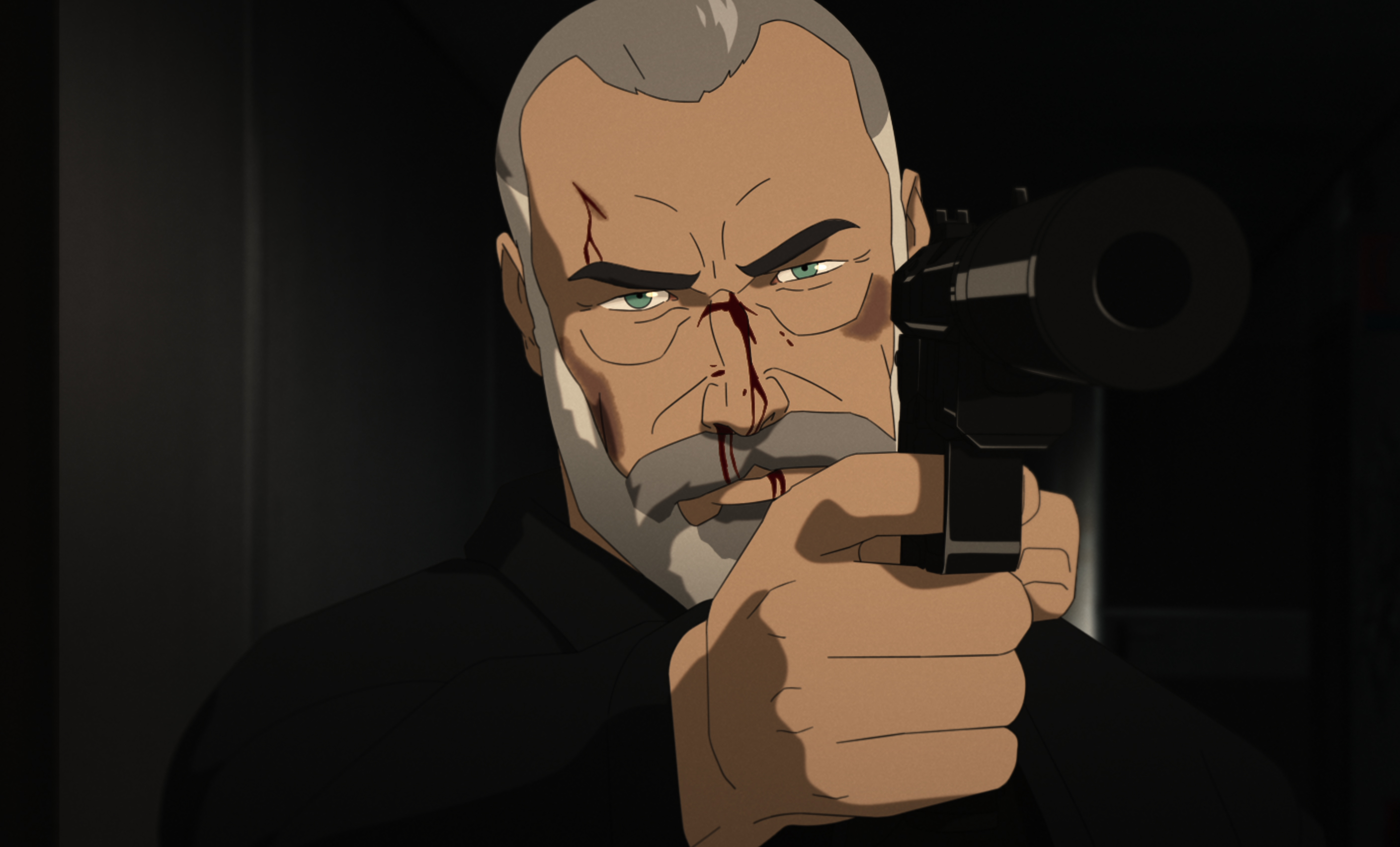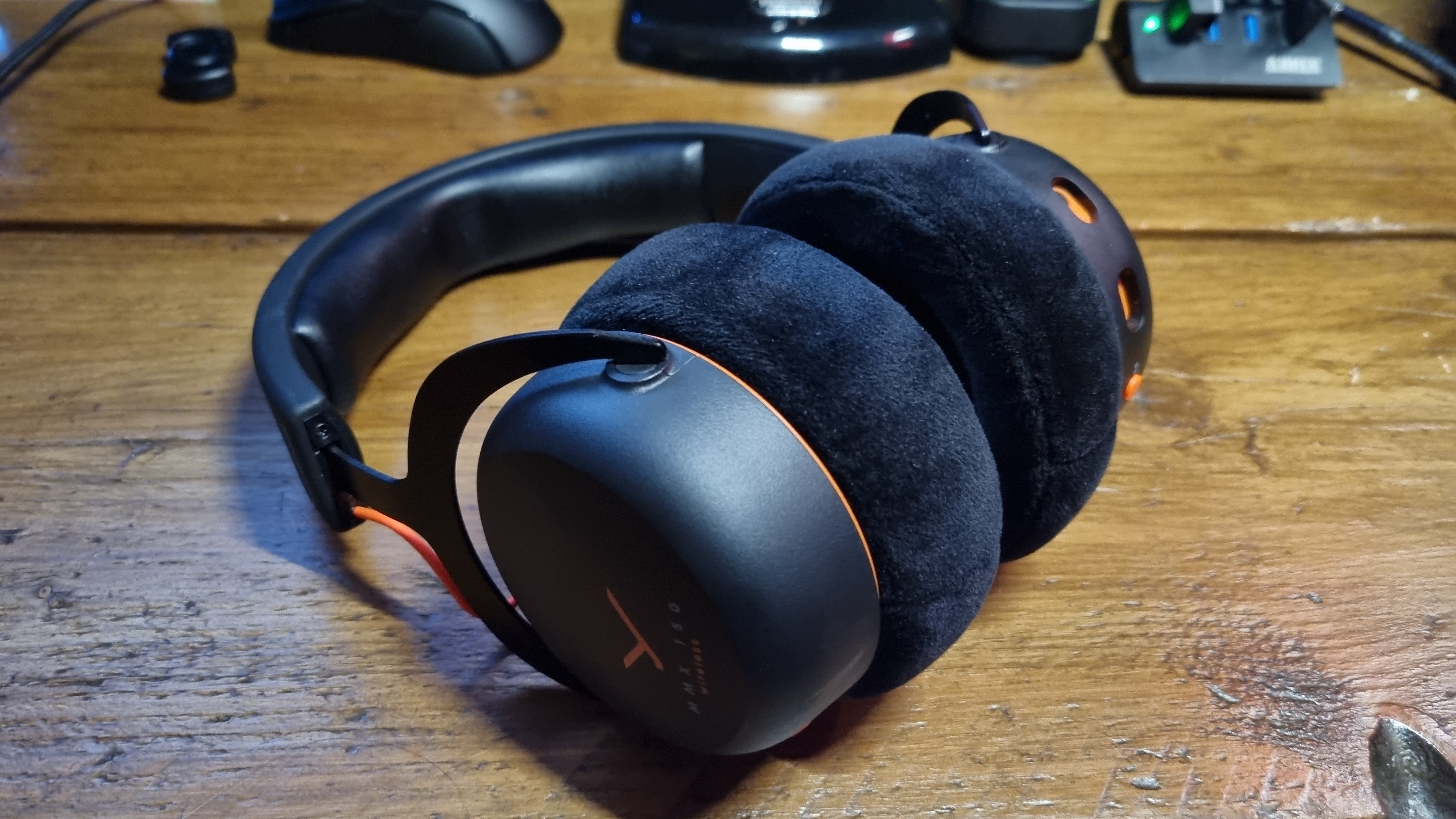Our Verdict
With as much action as stealth, it doesn't really feel like Splinter Cell, but Deathwatch is still worth watching.
PC Gamer's got your back
What is it? An animated series about Sam Fisher coming out of retirement for one last job
Release date: October 14, 2025
Network: Netflix
Director: Guillaume Dousse
Cast: Liam Schreiber, Kirby, Janet Varney
Link: Official site
Stealth isn't the easiest thing to adapt from a game to a TV series. Playing a Splinter Cell game as Sam Fisher, we're more than happy to spend hours slinking slowly through corridors and stairwells, crouching motionless for long minutes in the dark observing enemy patrol routes, and painstakingly carrying unconscious bodies into darkened corners to secrete them.
But watching someone do that in an animated series? For 20 minutes at a time? It's hard to imagine that being gripping, which is probably why the stealth sequences in Netflix's animated series Splinter Cell: Deathwatch don't last all that long before transitioning into straight action. There's as much gunplay, knife fighting, and car-chasing in Deathwatch as there is sneaking and slinking around—which isn't really in the spirit of the Splinter Cell games.
But for a TV show, our hero being more panther than ghost isn't a bad thing, really. Written and produced by John Wick creator Derek Kolstad and directed by Guillaume Dousse, the action in Splinter: Cell Deathwatch is tense, grounded, and well-coreographed. The episodes are short and go down easy with a streamlined plot and relatively light on dialogue. And Deathwatch does the most important thing a videogame adaptation can: it makes me want to play a Splinter Cell game.
Winter cell
As the series opens we're introduced to an older, more grizzled Sam Fisher than the one we know from the games. Living the quiet life in a snowy and secluded farmhouse in Poland, old man Fisher just wants to be left alone to sip scotch and read Moby Dick by the fireplace while his faithful dog sleeps at his feet.
We've seen this sort of retired hero business before, though refreshingly we don't have to sit through one of those clichéd scenes of his former handler attempting to bring him back into the fold for one last job while he insists he's retired, he's out, he's done with that life. Nope. When a badly wounded agent arrives at his farm with a team of assassins on her tail, Sam doesn't so much as grumble about getting back to work. He's just instantly back in. "There are no ex-Splinter agents," he says later, meaning you never truly retire from the agency.
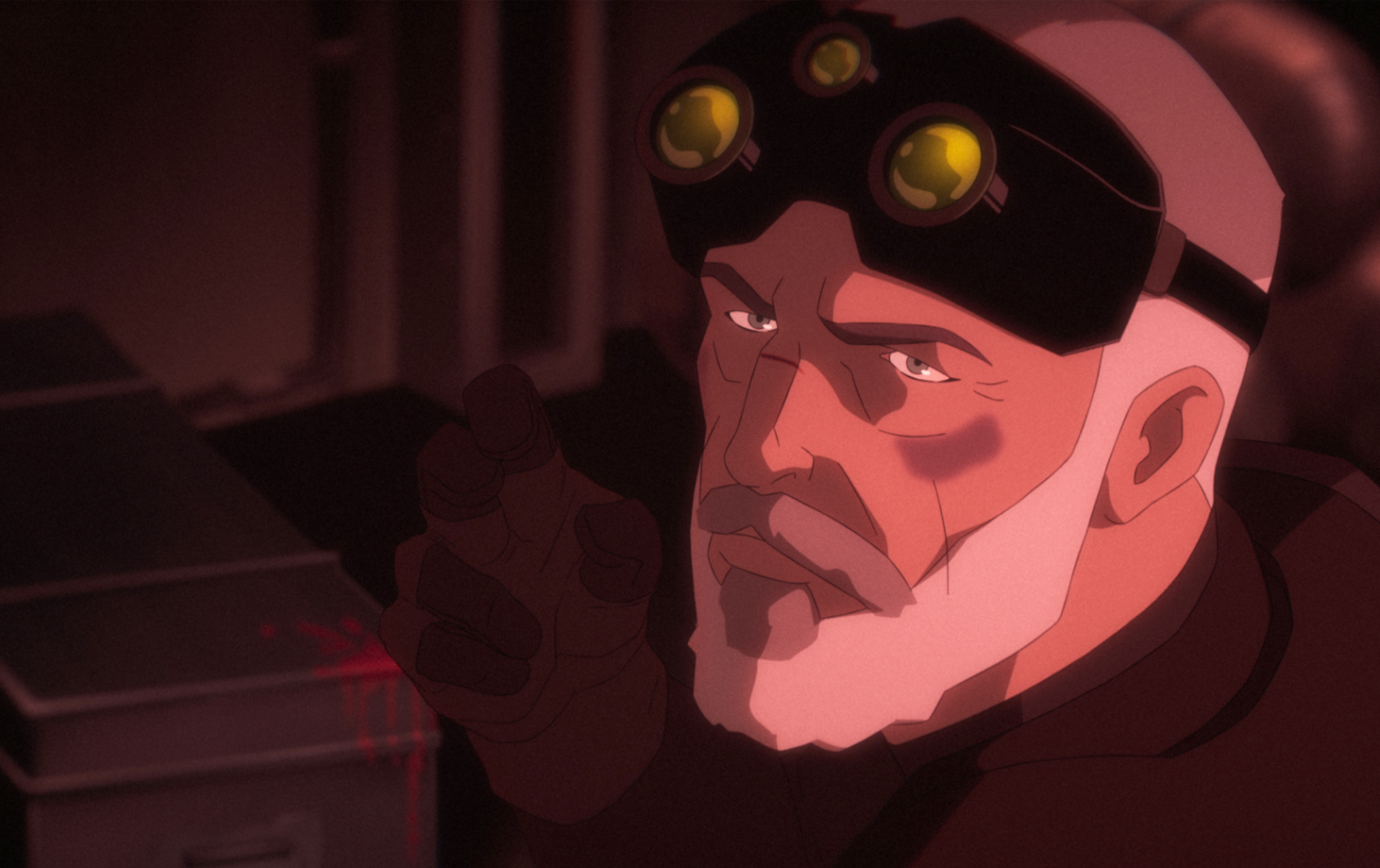
Completely skipping the reluctant hero trope may be a side-effect of the general briskness of Deathwatch's episodes. In an era where streaming series don't need to fit neatly into a timeslot, we're used to seeing episodes sprawl beyond 30 or even 60 minutes, but each episode of Deathwatch is a tight 22 minutes, making the animated series lean and efficient with little time for filler or distraction. It works in the series' favor, creating momentum between episodes and making it easy to say, "Sure, I'll watch another one."
Fisher isn't the only familiar name in Deathwatch. Anna "Grim" Grímsdóttir, voiced by Janet Varney (The Legend of Korra, Stan Against Evil), is still giving orders over the radio for black ops agency Fourth Echelon, and Fisher's flashbacks let us revisit Douglas Shetland, Sam's former comrade and nemesis, whose adult children are now running his company, Displace International. Deathwatch also introduces some new recruits, like hacker extraordinaire Thunder (Joel Oulette) and agent Zinnia McKenna, played by Kirby Howell-Baptiste (Barry, Killing Eve).
Keep up to date with the most important stories and the best deals, as picked by the PC Gamer team.
Baptiste's McKenna is the new Sam of Fourth Echelon, essentially: the show begins with her extraction op gone awry and ends with her quest for revenge against the people who tortured a fellow agent to death.

Don't worry, Sam is still the main character of Deathwatch, but by mid-series, McKenna is front and center, too, to the degree that if this were the third season of the show, I would suspect Netflix was planning a spinoff for her. Or maybe a game, if Ubisoft still made Splinter Cell games.
Sam acting as mentor for a young agent is handled with a light touch: he's old but he's not crusty or condescending, she's eager but not foolhardy or disrespectful, and there's almost none of the expected friction between them. Thank god. As with the old guy coming out of retirement cliché, I'm happy to skip the type of tropes we've seen done so many times before.
Sam I am?
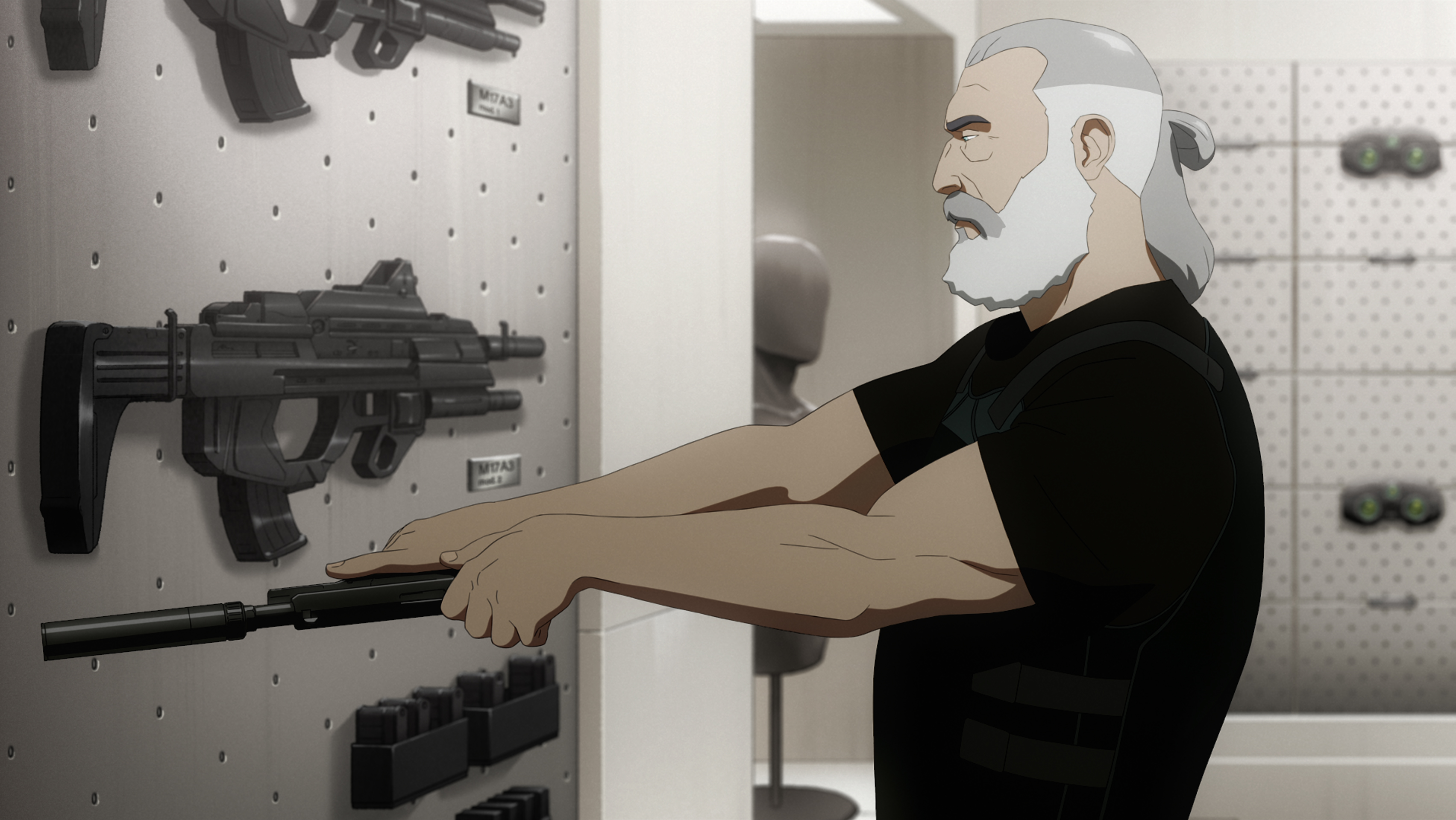
Sam Fisher isn't voiced by Michael Ironside, and yes, that's both disappointing and jarring even though I knew it going in. Liev Schreiber (Ray Donovan, Spotlight) does about the only thing you can do while trying to fill the shoes of an icon: he gives a perfectly decent performance as an older Sam Fisher. It's subdued and feels a bit flat, but of course it does: it's lacking the unique chewed-gravel gravitas Ironside brought to every single one of Fisher's lines in the games.
Schreiber doesn't try to duplicate him or reinvent him, he just does a perfectly OK job with the role, which is all anyone else beside Michael Ironside could do here.
The plot is pretty slim, which again, is fine, and with eight short episodes there just isn't the time or even the need for much more. The good guys have recovered some data but don't know what it means, the bad guys want it back and have an army of disposable assassins hunting for it, and there's a shadowy conspiracy hanging over the whole thing.
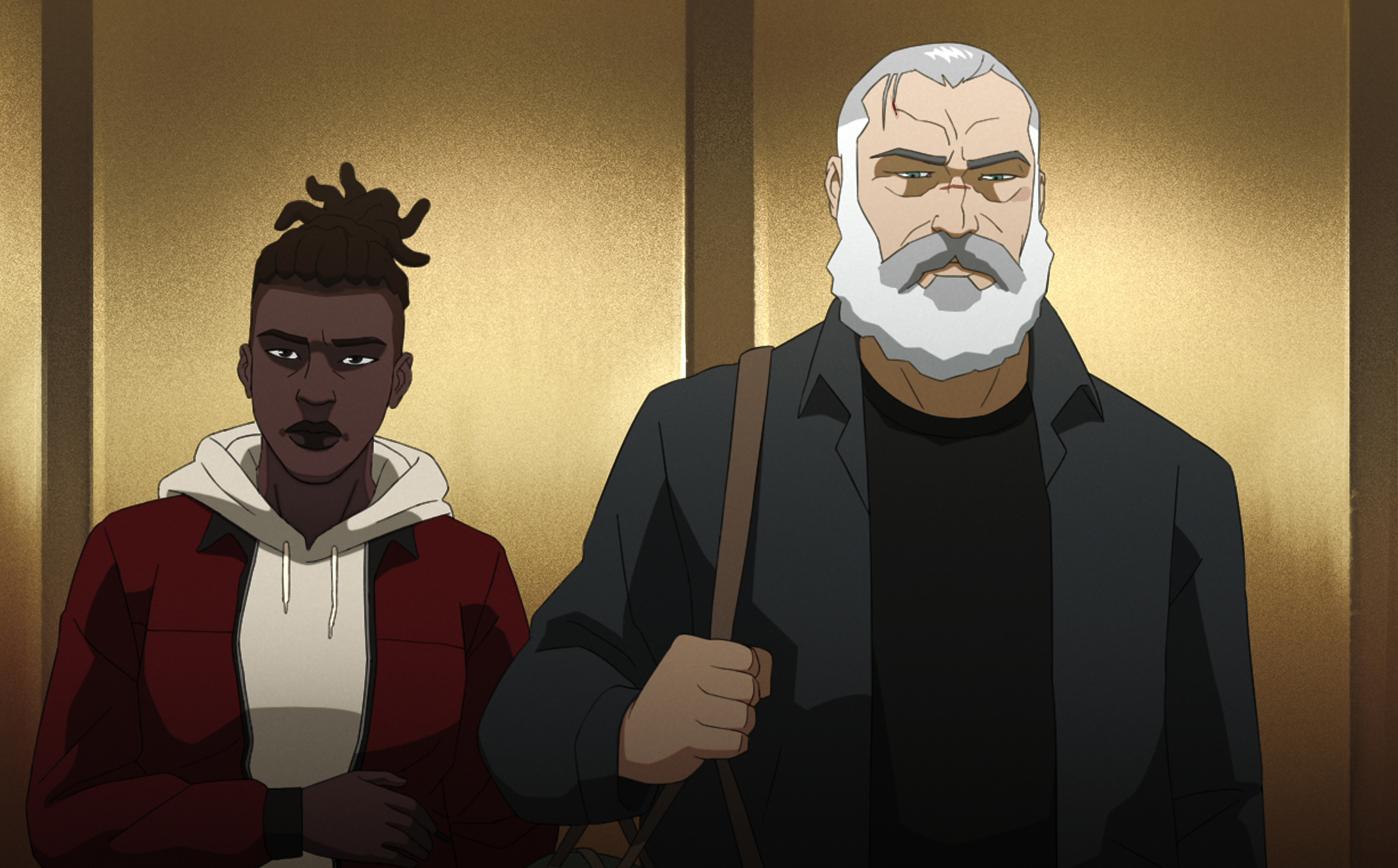
The show does a good job of keeping the full details of the evil scheme an intriguing mystery for most of the series, though the final reveal of the bad guys' machinations feels like something a lesser James Bond villain would cook up. Also disappointing is that Fisher is left with absolutely nothing to do in the final confrontation, as this is really McKenna's story arc to wrap up, not Sam's.
But this isn't a bad show at all. It's brisk, it's lean, and while there's not as much stealth as I'd hoped for, the action is gritty and grounded and pretty intense. Deathwatch doesn't give us the Splinter Cell we wanted, especially without Ironside, but no show ever really could do that because let's face it: what we really want is a new game, not a show. We don't want to just watch Sam Fisher, we want to be him again.
With as much action as stealth, it doesn't really feel like Splinter Cell, but Deathwatch is still worth watching.

Chris started playing PC games in the 1980s, started writing about them in the early 2000s, and (finally) started getting paid to write about them in the late 2000s. Following a few years as a regular freelancer, PC Gamer hired him in 2014, probably so he'd stop emailing them asking for more work. Chris has a love-hate relationship with survival games and an unhealthy fascination with the inner lives of NPCs. He's also a fan of offbeat simulation games, mods, and ignoring storylines in RPGs so he can make up his own.
You must confirm your public display name before commenting
Please logout and then login again, you will then be prompted to enter your display name.
